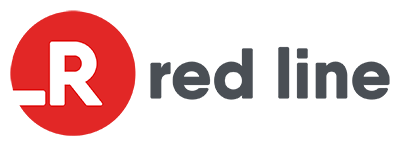IndyGo purchases everything from specialized transportation equipment to general office supplies. We buy from small vendors and multinational corporations. Click here for a comprehensive list of our purchasing needs.
Selling to IndyGo is no more complicated than doing business with any large corporation. However, as a public transit agency, IndyGo must adhere to Federal Transit Administration rules and regulations, and each contract must be detailed and contain specifications and requirements that vendors must meet. View the Circular FTA C 4220.1F for more information.
Yes. IndyGo vendors are usually paid within 30 days for services or goods. We know how vital it is to be able to predict cash flow, and we want to make doing business with us as productive as possible.
The first step is to get on an IndyGo Bidders List (a record of vendors who supply the goods and services we often need) by registering online. Please note that even though your firm’s name is placed on a Bidders List and we may be looking for the kinds of goods or services you provide, there is no guarantee you’ll automatically be asked to bid every time we solicit bds.
To reach as many potential vendors as possible, IndyGo uses several different methods of announcing bid opportunities.
- Directed Contact
If you’re on our Bidders List, you may be contacted directly when we need the goods and services you supply. However, being on our Bidders List does not guarantee that you will receive all bid solicitations and RFPs. - Check the Newspapers
Advertisements announcing most of our purchasing needs appear in Indianapolis-area newspapers, which may include the Indianapolis Star, the Indianapolis Recorder, La Voz, and Court and Commercial, as well as trade publications. - Consult our Web SiteIndyGo posts procurement solicitations here.
The procedures for awarding contracts differ, depending on whether a given contract is based on an informal solicitation, an IFB, or an RFP. Contracts that result from informal solicitations usually are awarded based on the lowest quote, but may specify a criteria other than price. IFBs are awarded to the lowest responsive and responsible bidder. This means that while a competitive price is a critical factor, IndyGo reserves the right to decide if the lowest bidder reasonably can be expected to responsibly fulfill the contract. Delivery performance, quality, and the ability to meet bid specifications are all important considerations in evaluating a bidder’s level of responsiveness.
For contracts based on RFPs, IndyGo considers a number of criteria, as specified for each contract, that likely will include competitive pricing, demonstrated ability to fulfill the contract, quality of samples, previous experience, and contract performance. IndyGo might also choose to negotiate with one or more vendors as part of the RFP process.
For any given solicitation, an IndyGo Contract Specialist will conduct the agency’s procurement process and will usually schedule a conference well in advance of the bid/proposal deadline, so all vendors will be able to visit, converse, and thus better understand a given solicitation from IndyGo.
Please note that, prior to being awarded, procurements conducted for contracts in excess of $100,000 require approval by the IndyGo Board.
IndyGo awards contracts to only responsive and responsible offerors/bidders. IndyGo determines responsiveness and responsibility by weighing these factors:
- Responsiveness – A bid/offer is responsive when it complies in all material aspects with the solicitation. This applies to both the method and timeliness of submission and the substance of any resulting contract. Exceptions to the solicitation document could cause the bid/offer to be deemed non-responsive, and therefore unacceptable.
- Responsibility – Responsibility includes, but is not limited to, the bidder’s financial stability, previous performance, experience, adequacy of equipment, special or unique skills, and ability to complete performance within a specified time limit.
IndyGo has no set schedule for disposing scrap, surplus material, or obsolete equipment. When the time comes for us to solicit bidders for these types of items/materials, IndyGo generally utilizes an auction house that, in turn, publicizes the information.
IndyGo must operate under a multitude of laws and regulations issued by federal, state, and local authorities. For a listing of the regulations and laws, please visit the “Procurement Regulations” section of this website.
IndyGo consistently strives to ease the inherent complexity of federal procurement requirements. To that end, IndyGo posts a comprehensive list of its procurement forms online for download. Please visit the “Procurement Regulations” section of this website for more information.
IndyGo welcomes all small and disadvantaged business entities to participate in its procurements. Officially, a DBE firm is described as a firm that is owned and controlled by socially and economically disadvantaged individuals pursuant to 49 CFR, Part 26. In order for your organization to be recognized as an official, authorized DBE, you must provide certification of such status through an affidavit accompanied by a copy of your certification letter from your Unified Certification Program (UCP). For interested Indiana vendors, the UCP is operated by the Indiana Department of Transportation. Information about INDOT’s DBE program can be accessed here.
The Indiana Unified Certification Program publishes and maintains a Disadvantaged Business Enterprise Directory that lists all certified DBEs in the State of Indiana. A copy of this directory can be viewed or printed from the Indiana Department of Transportation website.
No, generally only larger purchases are found on our website.



